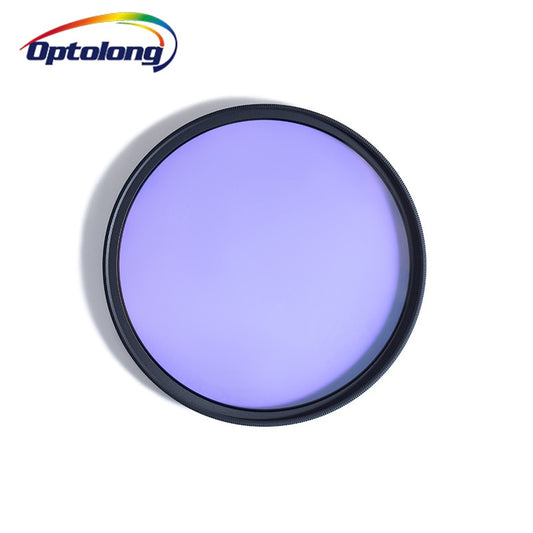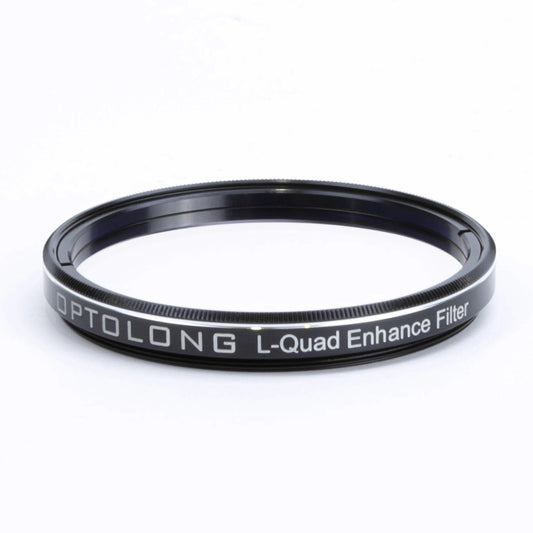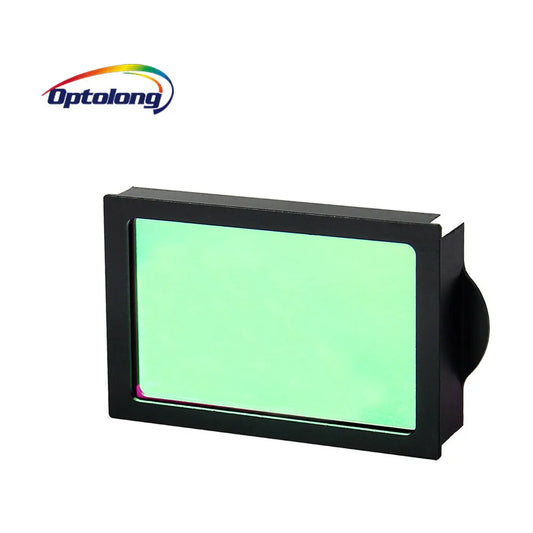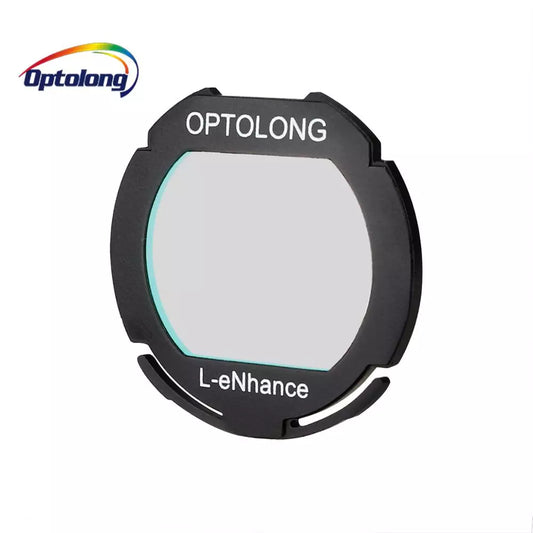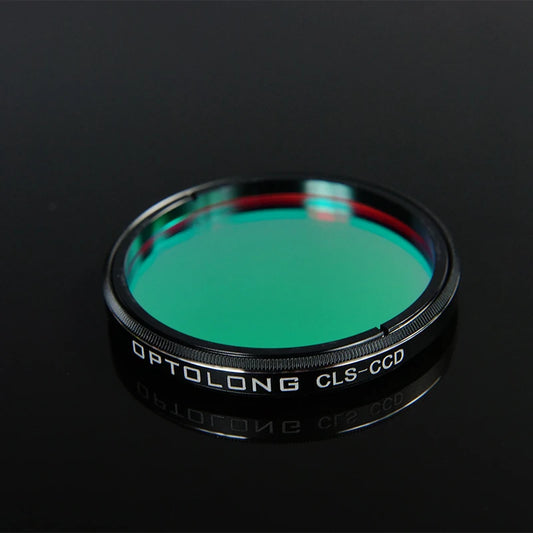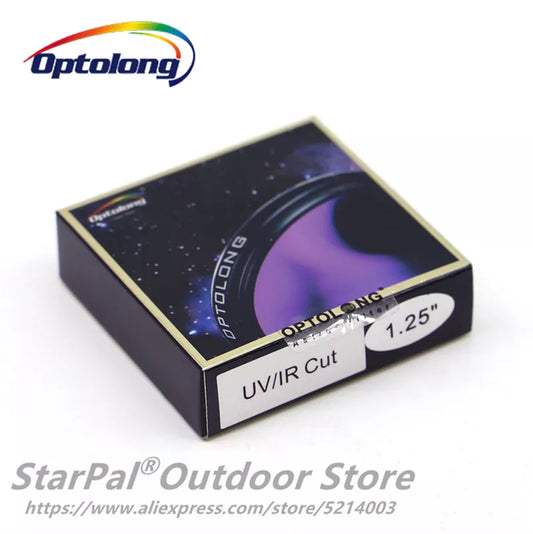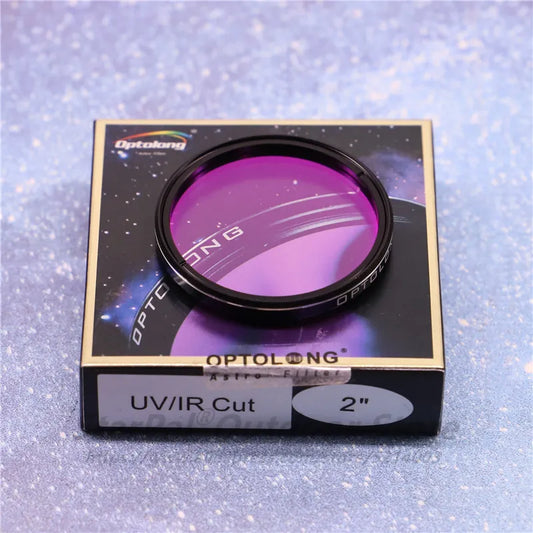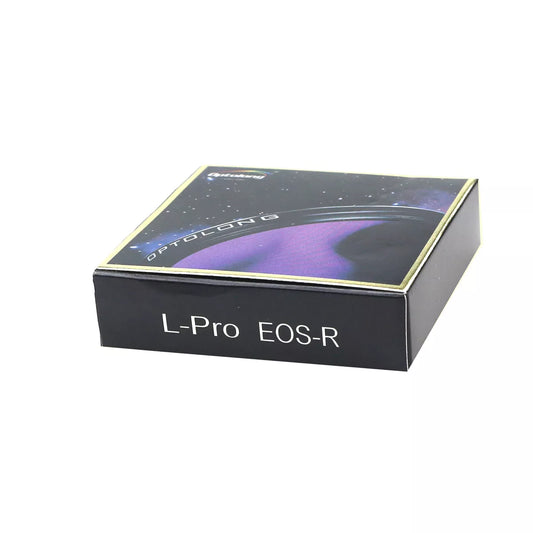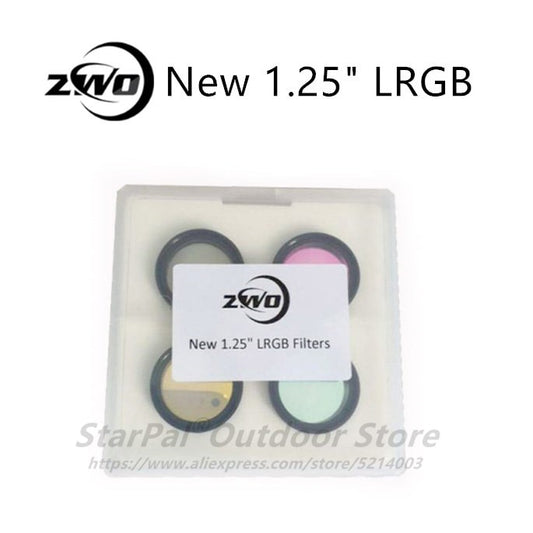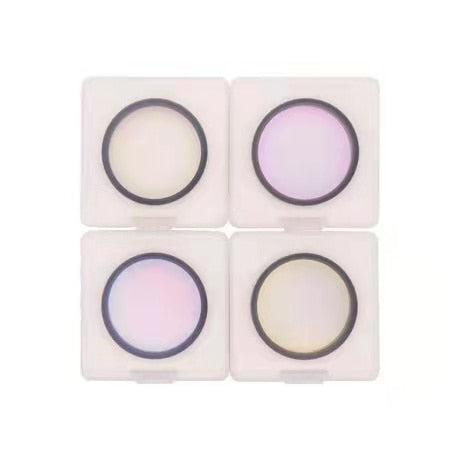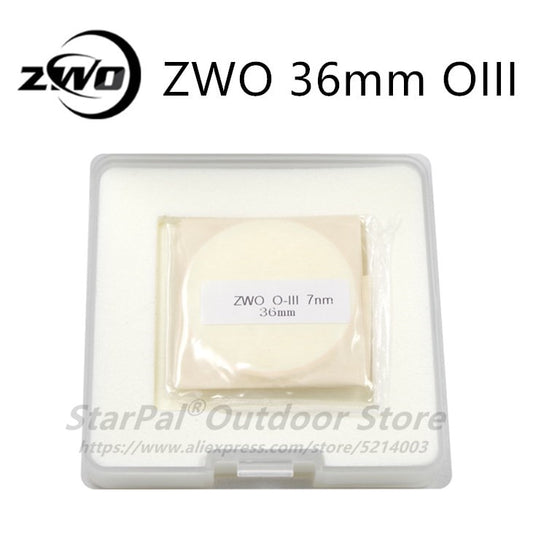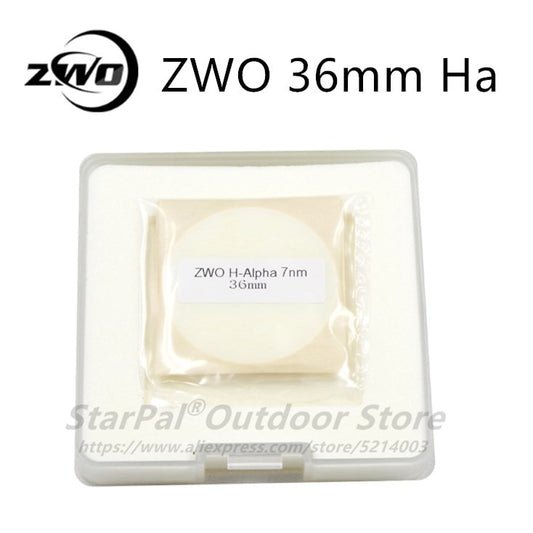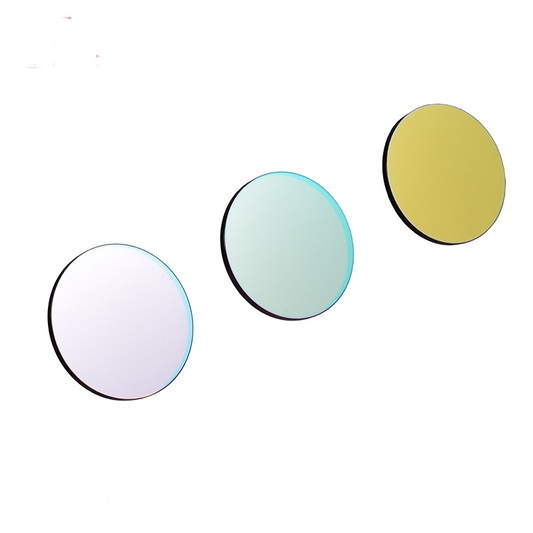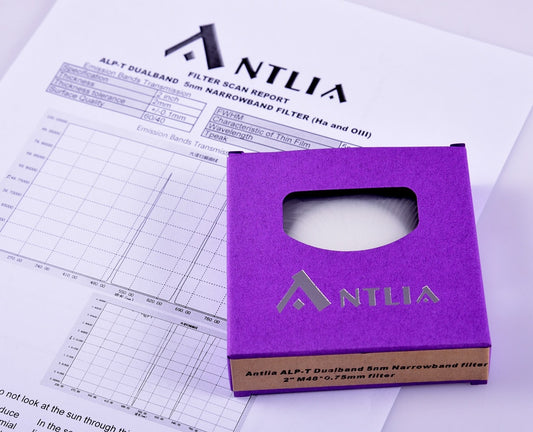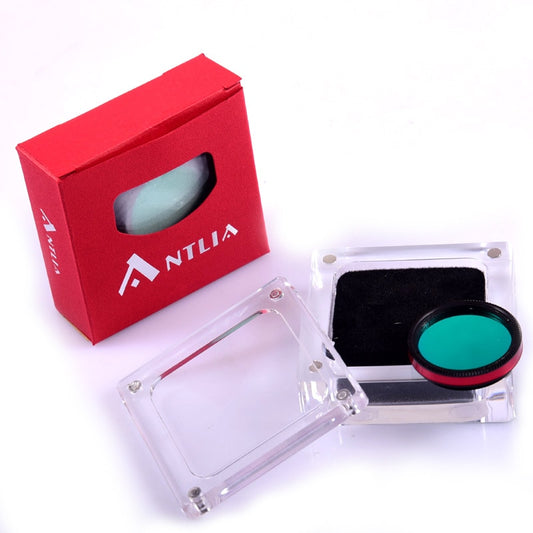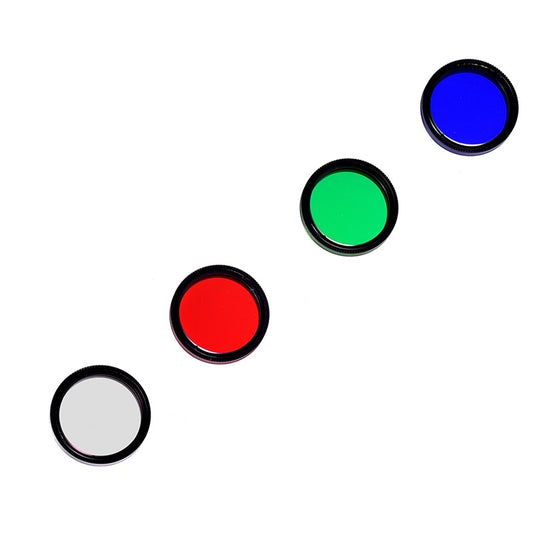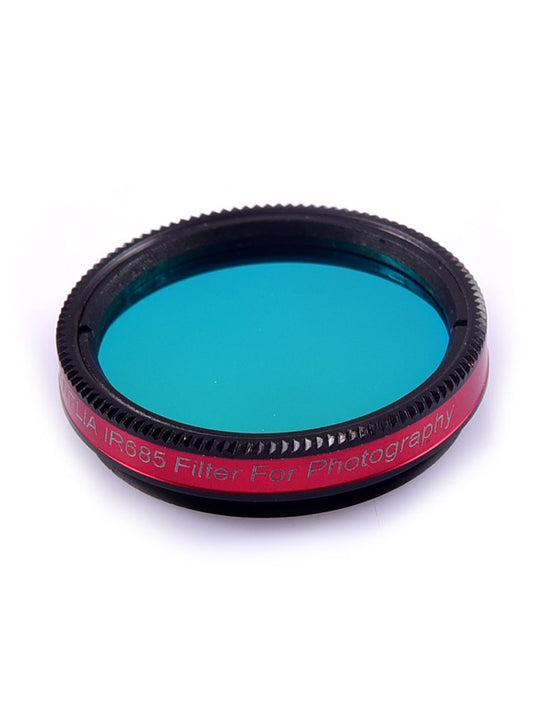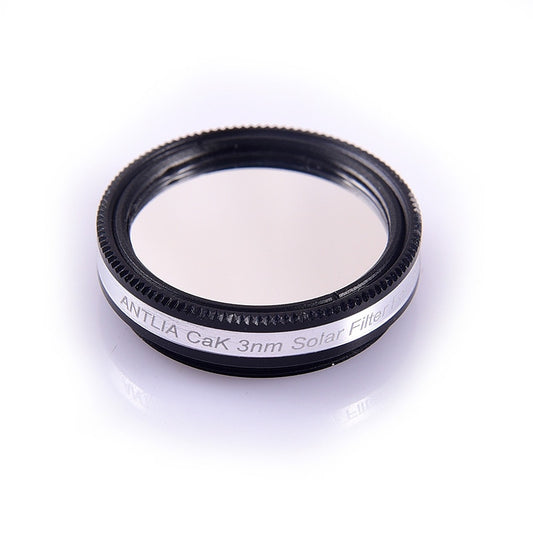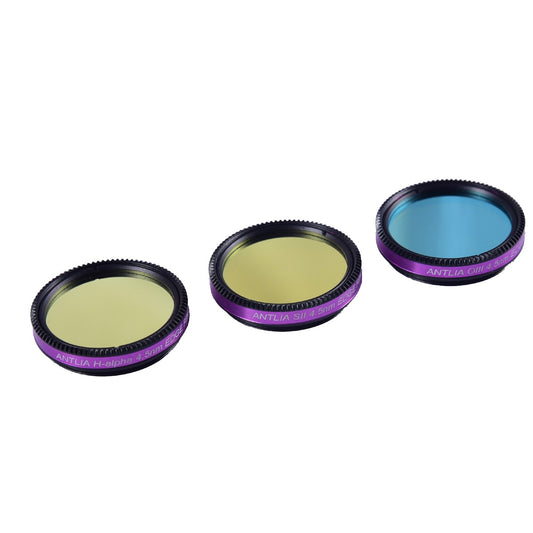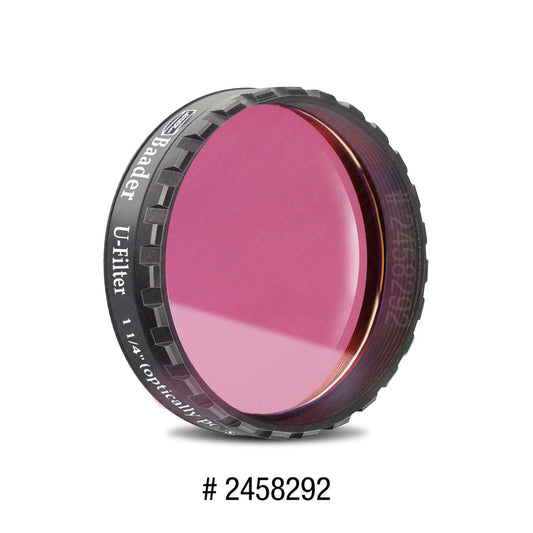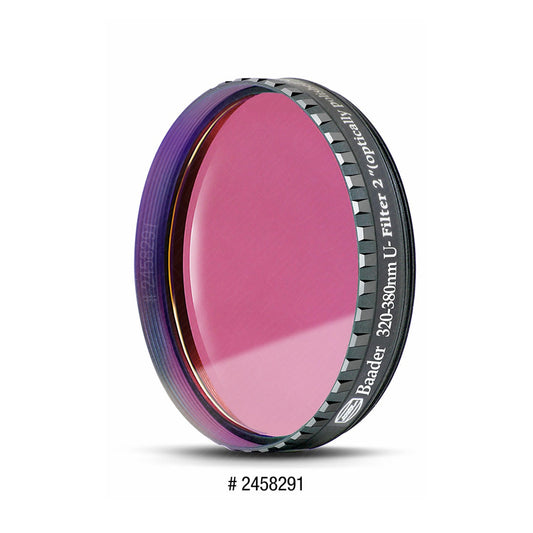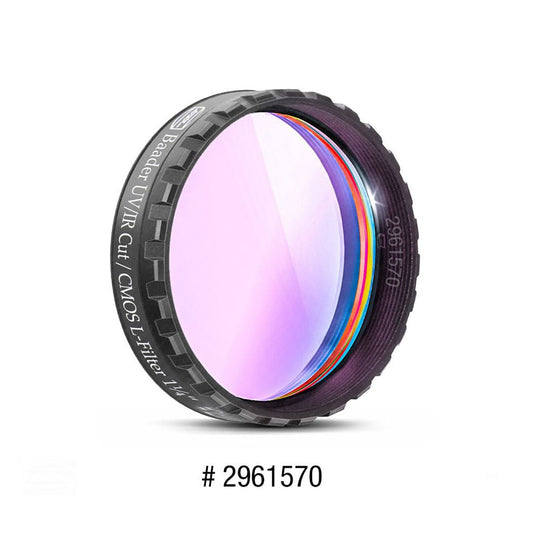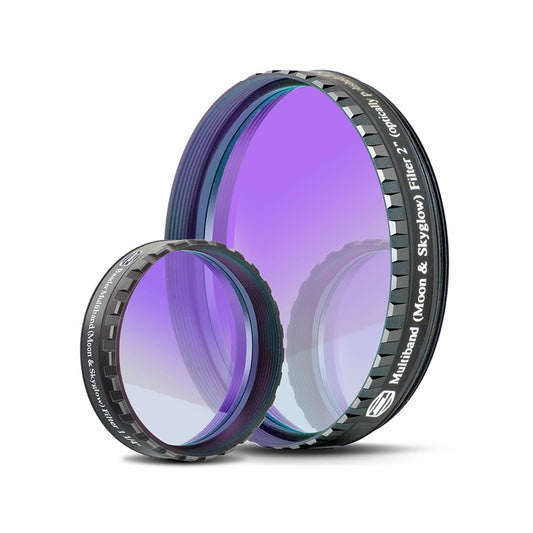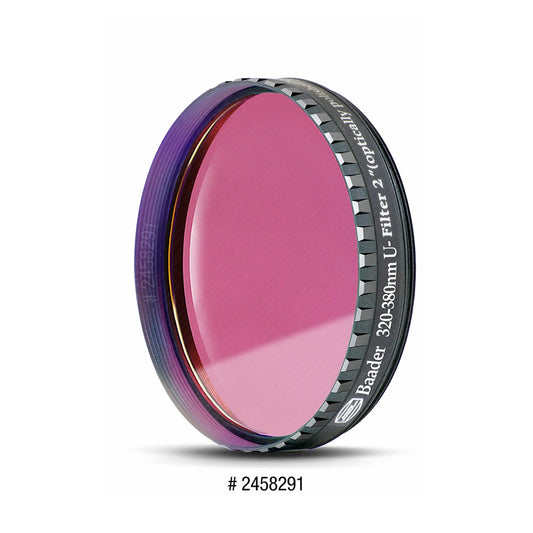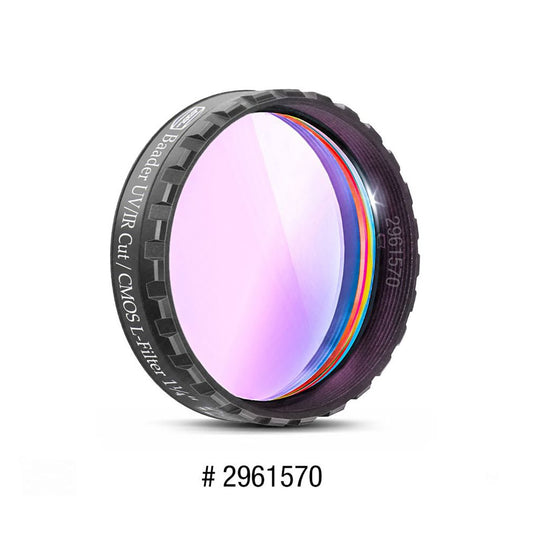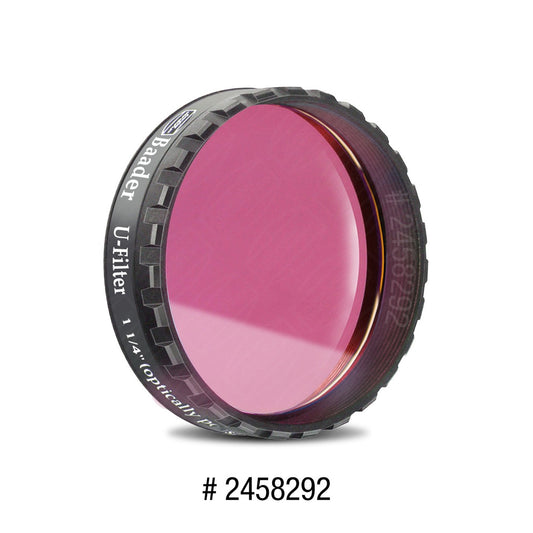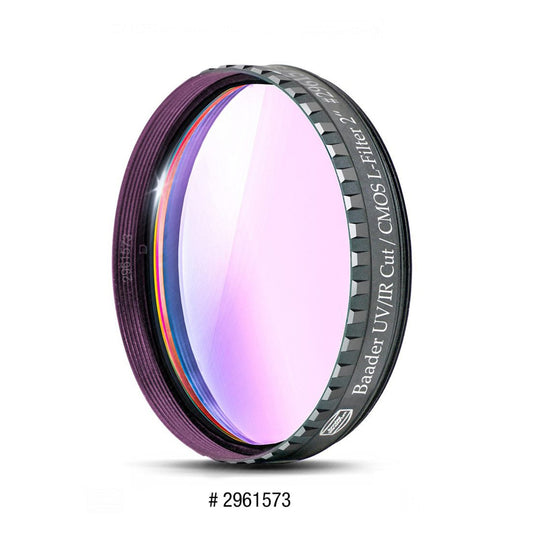Hydrogen Alpha Filter: A Guide to Observing the Sun and Deep-Sky Objects
H Alpha Filters
The hydrogen alpha filter is a crucial tool for observing the Sun and deep-sky objects in astronomy. It allows astronomers to view specific wavelengths of light emitted by hydrogen atoms, revealing fascinating details about our universe. In this blog post, we'll explore what a hydrogen alpha filter is, how it works, and its uses in astronomy.
What is a Hydrogen Alpha Filter?
A hydrogen alpha filter is a narrowband filter that isolates a specific wavelength of light emitted by hydrogen atoms. It is designed to block out all other wavelengths of light, allowing only the hydrogen alpha wavelength (656.28 nm) to pass through. This creates a highly contrasted and detailed image of the Sun and other hydrogen-rich objects in space.
How Does a Hydrogen Alpha Filter Work?
A hydrogen alpha filter works by using a specialized piece of glass that contains a thin layer of hydrogen alpha material. This material absorbs all light except for the hydrogen alpha wavelength. When light passes through the filter, only the hydrogen alpha wavelength is transmitted, creating a highly detailed and contrasted image.
Uses of Hydrogen Alpha Filters in Astronomy
1. Solar Observation
One of the most common uses of a hydrogen alpha filter in astronomy is for solar observation. By isolating the hydrogen alpha wavelength, astronomers can observe features on the Sun's surface, such as sunspots, prominences, and filaments. These features are typically difficult or impossible to observe with the naked eye or with other filters.
2. Deep-Sky Objects
Hydrogen alpha filters can also be used to observe hydrogen-rich deep-sky objects, such as emission nebulae and supernova remnants. By isolating the hydrogen alpha wavelength, astronomers can reveal the intricate details of these objects and gain a better understanding of their structure and composition.
3. Astrophotography
Hydrogen alpha filters are also commonly used in astrophotography to capture stunning images of the Sun and deep-sky objects. By using a hydrogen alpha filter, photographers can capture highly detailed and contrasted images that would not be possible with other filters or with the naked eye.
Choosing a Hydrogen Alpha Filter
When choosing a hydrogen alpha filter, consider the following factors:
- Telescope Compatibility: Make sure the filter is compatible with your telescope and eyepieces.
- Bandpass: Consider the bandpass of the filter, which determines the range of wavelengths that can pass through. Narrower bandpasses provide greater contrast but may require longer exposure times.
- Price: Hydrogen alpha filters can range in price from a few hundred dollars to several thousand dollars. Determine your budget and choose a filter that fits within your price range.
Tips for Using a Hydrogen Alpha Filter
Use a Stable Mount
When observing the Sun or deep-sky objects with a hydrogen alpha filter, it's important to use a stable mount. Even the slightest vibration or movement can cause blurring or distortion in the image. Consider using a sturdy equatorial mount or a tripod with a motorized tracking system for the best results.
Adjust the Exposure
Hydrogen alpha filters can require longer exposure times than other filters or with the naked eye. Experiment with different exposure times to find the optimal setting for the object you are observing. Additionally, adjusting the ISO settings on your camera can also help capture the best image.
Avoid Direct Sunlight
When observing the Sun with a hydrogen alpha filter, it's important to avoid looking directly at the Sun without proper eye protection. Additionally, never aim your telescope directly at the Sun without a proper solar filter. These precautions are essential for protecting your eyes and your equipment.
Practice Patience
Observing the Sun or deep-sky objects with a hydrogen alpha filter requires patience and practice. It may take several attempts to capture the perfect image or to observe the intricate details of an object. Don't be discouraged if you don't get it right the first time – keep practicing and experimenting until you achieve the desired results.
Conclusion
A hydrogen alpha filter is an invaluable tool for observing the Sun and deep-sky objects in astronomy. By isolating the hydrogen alpha wavelength, astronomers can reveal fascinating details and capture stunning images of our universe. When using a hydrogen alpha filter, remember to use a stable mount, adjust the exposure, avoid direct sunlight, and practice patience. With the right equipment and techniques, you can unlock the mysteries of the universe and explore the wonders of the cosmos.
More Light Pollution and Filters Topics:
- What Filters do I need for Astrophotography
- Top 10 Best Filters for Astrophotography
- Optolong l-Pro vs l-Enhance vs l-Extreme
- Planetary Filters
- Solar Telescope Filters
- Best Filter for Galaxies
- ND Filter for Astrophotography
- Light Pollution Filters for Telescope
- Light Pollution Filter for DSLR
- Astrophotography Filter Drawer
- What Filter to use for Astrophotography
- How to put a Filter on a Telescope
- Best Light Pollution Filter for DSLR Astrophotography
- How does Light Pollution affect the visibility of Stars
- Light Pollution Definition
- Do Light Pollution Filters work
- Light Pollution Filter Astrophotography








